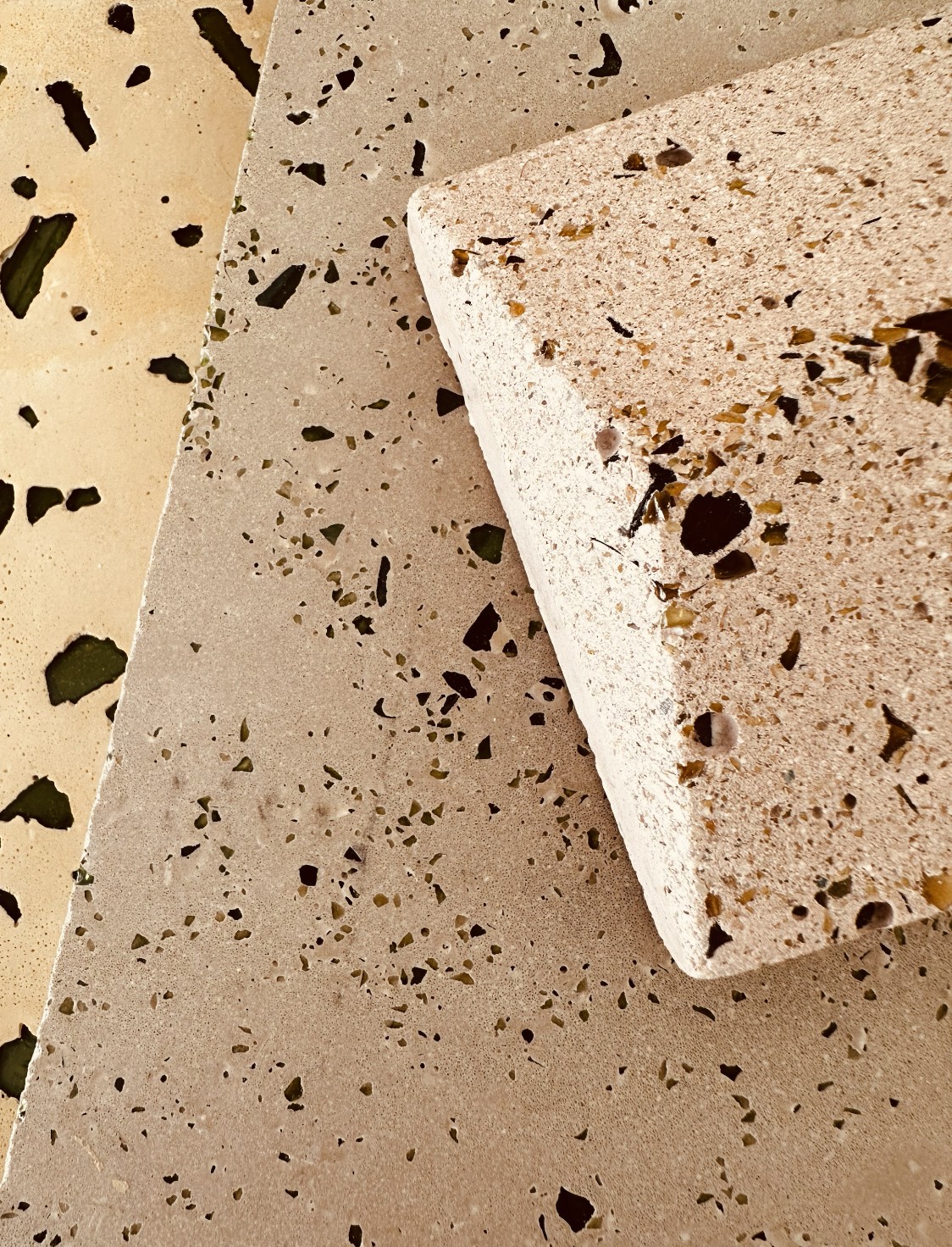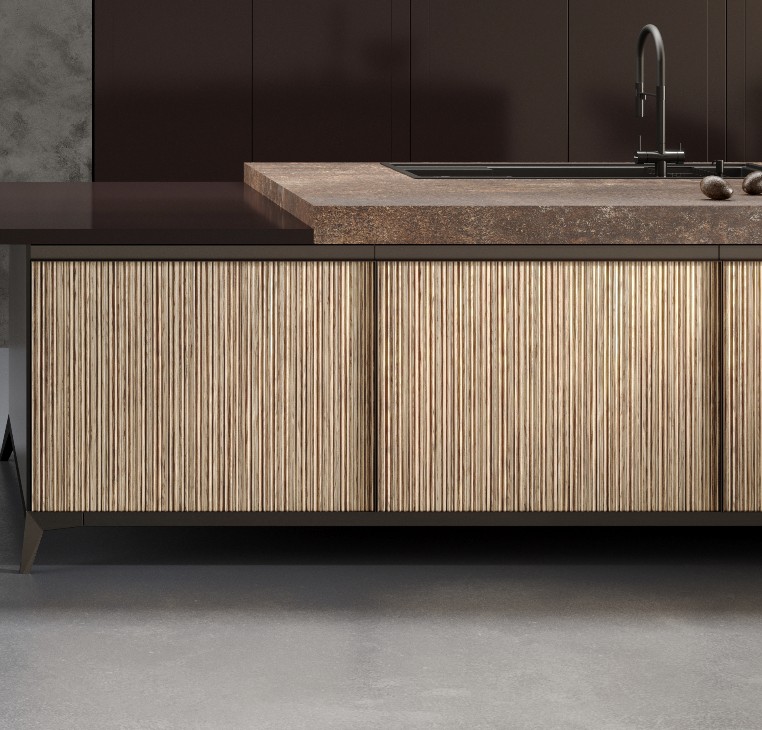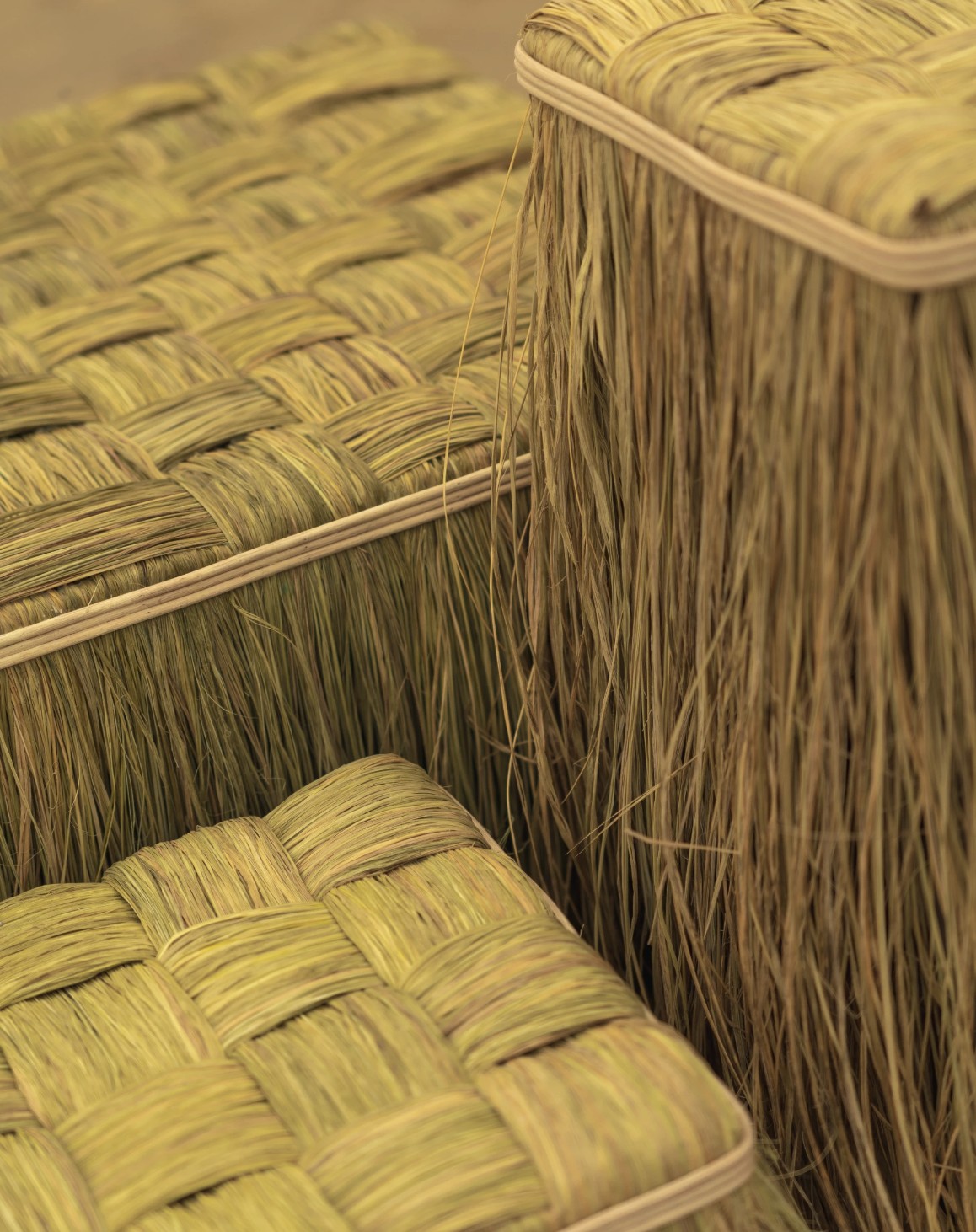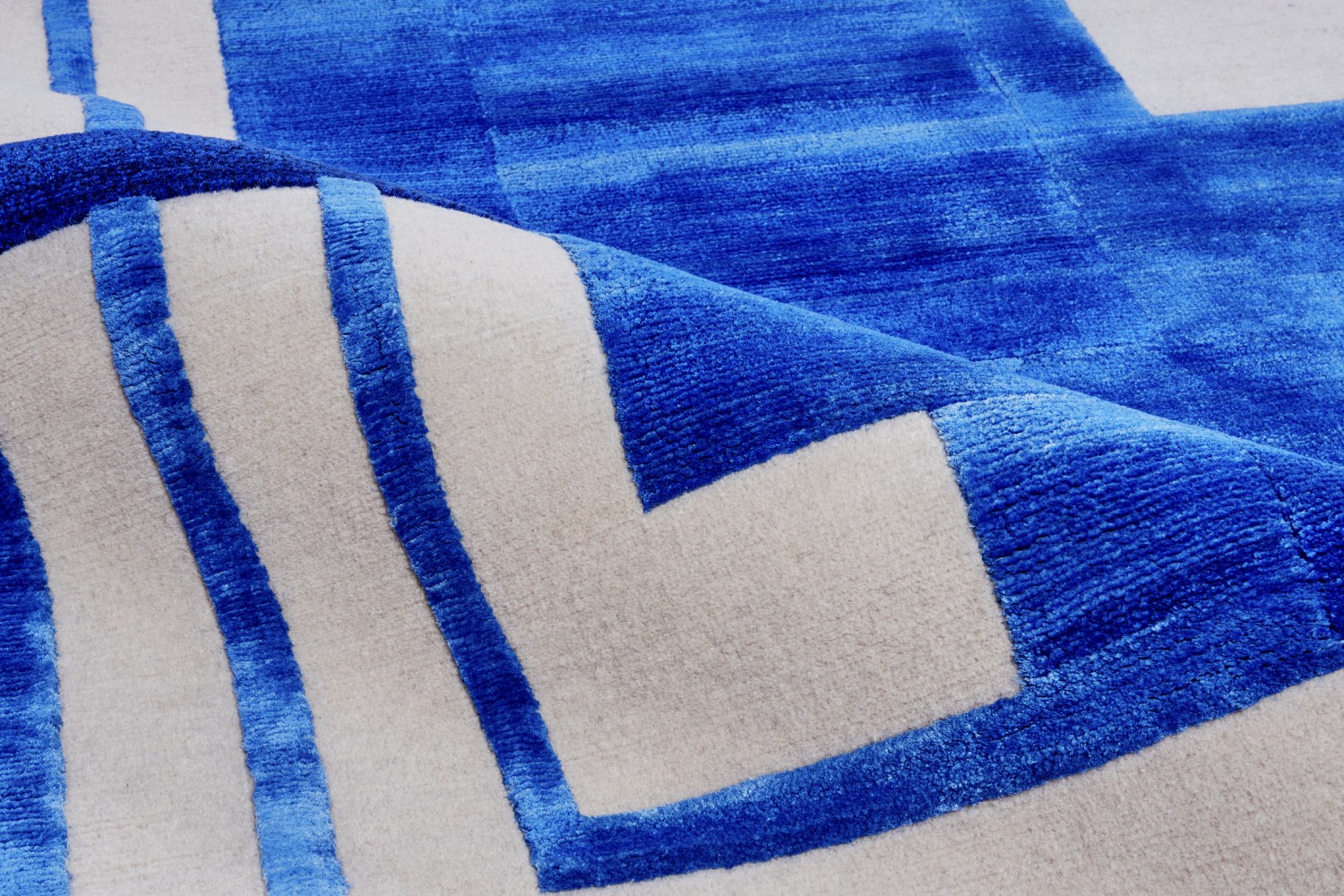As part of an artistic and scientific approach, Atelier Phydiastone innovates with its ecological stone.
Born in 2022, Atelier Phydiastone is the brainchild of Seta Zandi, who combines her passion for art and decoration with her career as an engineer and researcher specialising in rock mechanics. It’s a combination that has led to the creation of an innovative and sustainable material: ecological stone. ‘Ecological stone is the most economical and practical alternative to natural stone. It has enormous, highly appreciable advantages. It’s ecological, economical, easy to maintain, hard-wearing but lighter, and provides good thermal and acoustic insulation. The opportunities for using eco-friendly stone are endless: you can choose the look, finishes and colours to suit you,’ explains Seta Zandi. This alternative is also part of a low-carbon manufacturing process based on the principle of re-using waste materials.
Glass, ceramics, bricks and gravel recovered from building sites, as well as household waste such as plastic, glass and coffee capsules, are recycled during their transformation. It’s a second life that sees them transformed into wall and floor tiles, as well as decorative objects and pieces of furniture for indoors and out.
A project characterised by its immense range of possibilities. Atelier Phydiastone’s creations are produced from moulds, making it possible to produce a wide variety of shapes, colours and textures. ‘By drawing on our unique expertise in different types of rock and stone, we have developed an innovative and unique manufacturing process that produces sustainable, eco-responsible products combining unique shapes and colours with the familiar, high-quality texture of stone. Our range of ecological stones is very rich and extensive: depending on the mix used for its composition and the moulds used to make it, the stone can have an infinite number of aspects, in terms of shapes, surfaces, textures, colours and shades,’ adds the founder of Atelier Phydiastone. This technical versatility results in a trompe-l’œil material that makes us forget that we’re not dealing with natural stone, but with recycled waste. The malleability of this manufacturing method makes it possible to create bespoke pieces, from the design of the objects to the selection of materials.
The virtuosity of the company’s creations won it the A’ Design Award in 2023 in the Circular Economy and Waste Redevelopment category for its Petra coffee table, inspired by the eponymous city and characterised by pink tones.




